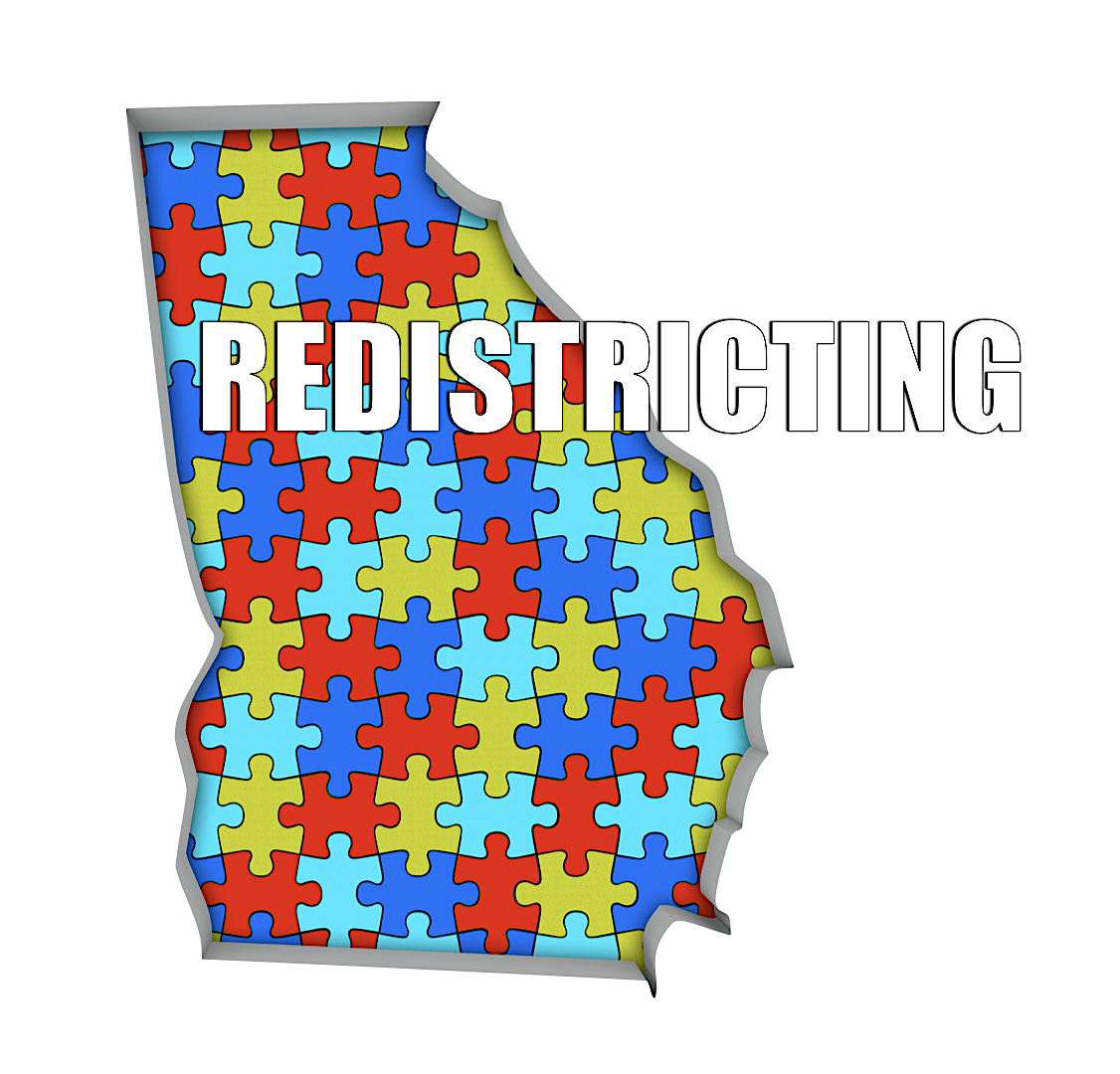
ATLANTA (GA Recorder) — Georgia lawmakers held their first in-person hearing Monday on the once-a-decade process to redraw boundaries for the state’s congressional and legislative districts, introducing the public to a partisan drama set to play out this year.
Earlier this month, state House and Senate committees in charge of redistricting and reapportionment held a virtual hearing for residents to advocate for changes they would like to see.
This year’s process is especially fraught: the 2020 Census count is delayed because of the pandemic, meaning the state will not even get the data it needs to draw districts until the fall. This will be the first time since 1965 that a map produced by the Georgia Legislature is not subject to federal Voting Rights Act preclearance. The parties are set for a heated battle as Democrats are riding high off their 2020 wins, but Republicans still control state government, including the Legislature, which has the final say on the maps.
FIND reapportionment town hall hearing near you
Many of the 60 speakers or so who came to testify on the third floor at the state Capitol Monday eschewed any pretense of nonpartisanship.
“In the majority of statewide races, our citizens kept the state government in the responsible hands of the Republican Party,” said Decatur resident John Gillin. “As a result, the Republican party has been granted the right by the people to redistrict our state. Democrats will cry and scream about the unfairness of the Republicans managing the process, but again, elections have consequences. Truth be told, Democrats, if the shoe were on the other foot, would cram through partisan redistricting to the very limit right now.”
Some conservative speakers made specific requests about how they thought maps ought to be redrawn.
Atlanta attorney Leah Aldridge is a Republican who ran against Democratic Sen. Jen Jordan in 2018 in a district that includes parts of Atlanta and Sandy Springs in Fulton County as well as parts of south Cobb County, which has voted increasingly for Democrats in recent elections. Jordan won in 2018 with 58% of the vote, and in last year’s election, she defeated another GOP candidate with nearly 62% of the vote.

A fair district would eliminate Cobb from that equation, Aldridge argued, because the communities have different ways of life.
“As a Republican, I won Buckhead,” Aldridge said. “As a Republican, I won Sandy Springs. As a Republican, I won Brookhaven, but I did not win that race because my community is politically tethered to a community in another county across the river, whose biggest headline last Thursday wasn’t about shootings and wasn’t about carjackings; it was about a traffic problem that occurred when a Red Bull truck got dislodged in a covered bridge in Smyrna.”
Others said they are more concerned about politicians manipulating district borders around Black neighborhoods to hold onto power, a practice embedded in Georgia history.
Atlanta resident Stacey Hopkins said she was incorrectly purged from the voting rolls before the last election, which severely hampers her faith in the government to carry out the reapportionment mapping process neutrally.
“I keep hearing about how racism exists, but it doesn’t exist in Georgia, but I get shown it every single day by this state, and they have never apologized to me or all the other folks who were involved in that purge,” she said. “Do you really think I have faith that you will be able to come up with anything that is remotely bipartisan?”
Many called on lawmakers to be more transparent, including making draft maps available to the public and holding more public hearings.
The state plans to hold nine more meetings arranged from the Georgia mountains to the coast to gather public input throughout the state through July 30.
Critics say the meetings are too few, scheduled at inconvenient times, are only available in English, and are not reachable by most Georgians.
“The scheduled town halls released by this committee are not equitable,” said Georgia NAACP President James Woodall. “They exclude seven of the 10 most populous counties in this state, most notably, Gwinnett County, the most diverse county in the state, as well as Chatham County, which is home to Georgia’s second-largest municipality.
“Also, as defined by the Atlanta Regional Commission, half of Georgia voters live within metro Atlanta, yet only one of the nine in-person town halls will occur in these counties,” he said.
Cobb resident Caroline Holko, who ran against Marietta Republican Rep. John Carson in 2020, was one of several speakers who suggested assigning the redistricting process to a nonpartisan commission that would use computer models to create fair districts. Carson won reelection with nearly 62% of the vote.
“I just hope that you will consider that the people of Georgia are dependent on you to do a good job,” she said. “So please take that responsibility seriously, and please keep the process transparent and fair so that we can all live in the best Georgia possible.”
Committee members did not take questions or speak during the hearing, but after the public comment session, Georgia House Speaker Pro Tem Jan Jones told the crowd she – a Milton Republican – ran in 2002 in a House map drawn by Democrats and later invalidated by federal judges, and she later ran on Republican-drawn maps that were approved by the Justice Department of Democratic President Barack Obama.
“I have every confidence that the Republican-majority legislature will once again adopt a process that takes into account the complexities and fullness of Georgia communities and addresses,” Jones said. “I also have every confidence that the final maps will be drawn fairly and equally, just as they were by the Republican majority in 2011. I finally have every confidence the 2021 maps will not be gerrymandered and drawn unconstitutionally, as the Democratic majority did the last time they were in control in Georgia.”







